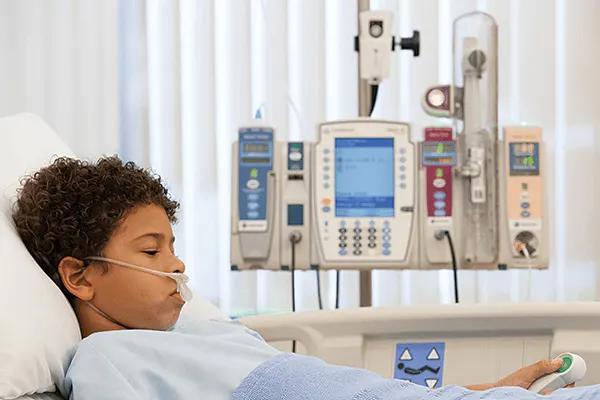An Overview of Patient-Controlled Analgesia Pumps and Their Advantages

Although there are two basic classes of infusion pumps -- large volume and small volume -- there are actually several different other types of IV pumps within those classes. The purpose of infusion pumps is to dispense fluids or medications into a patient's body in a controlled way. Patient-controlled analgesia pumps are a specific type of IV pump that allows the patient to take an active role in the management of their own pain. In today's post, we'll offer an introduction to PCA pumps and discuss the advantages of IV pumps with PCA modules can provide.
What is a Patient-Controlled Analgesia Pump?
This type of IV pump delivers medication or fluids, just like other infusion pumps do. The difference here is that this type of pump has features that allow the patients themselves to administer controlled amounts of their pain medication. The PCA pump, which is connected to the patient's IV line, contains a prescribed amount of medication that can be dispensed by the patient using a press of a button. Some PCA pumps will administer a slow but constant flow of medication, while others will give the patient the option to self-administer it as needed.
What are PCA Pumps Used For?
PCA pumps are used most often during the surgical recovery process. While the patient recovers from a surgery, the clinical staff are able to assess the pain levels and program the pump to maintain more consistent pain levels. However, PCA pumps can also be used by those who suffer from chronic pain conditions or who are recovering from other painful situations.
What are the Advantages of IV Pumps Controlled By Patients?
There are several advantages of using IV pumps with PCA modules. They include...
- More consistent pain management: Because the patient is typically the best person to assess what kind of pain they're in, they're better equipped to know when they require more pain medication. This makes recovery much less painful, with fewer "peaks and valleys."
- Less anxiety and depression: Recovering from a painful condition can take a toll on a patient's mental health, too -- particularly when their physical pain is not being managed properly. If their physical pain is easier to cope with, it may help the patient have a more positive attitude and experience less stress during the recovery process.
- Decreased need for injections: With a PCA module delivering medication either on a constant basis or as needed, the patient will have a lessened need for new pain medications administered via injection. This means they can avoid a physically and mentally uncomfortable situation and the medication can actually be administered more rapidly.
- Active recovery participation: Patients who are able to take on a more active role in their own recovery tend to recover more quickly. This means the idea of recovery takes on a more positive perception. Their recovery process can be more personalized and their overall experience will improve.
There are of course, many advantages of IV pumps in a general sense. By adding patient-controlled analgesia options to your IV equipment and prioritizing proper training, receive better care and a better management of their pain levels.
